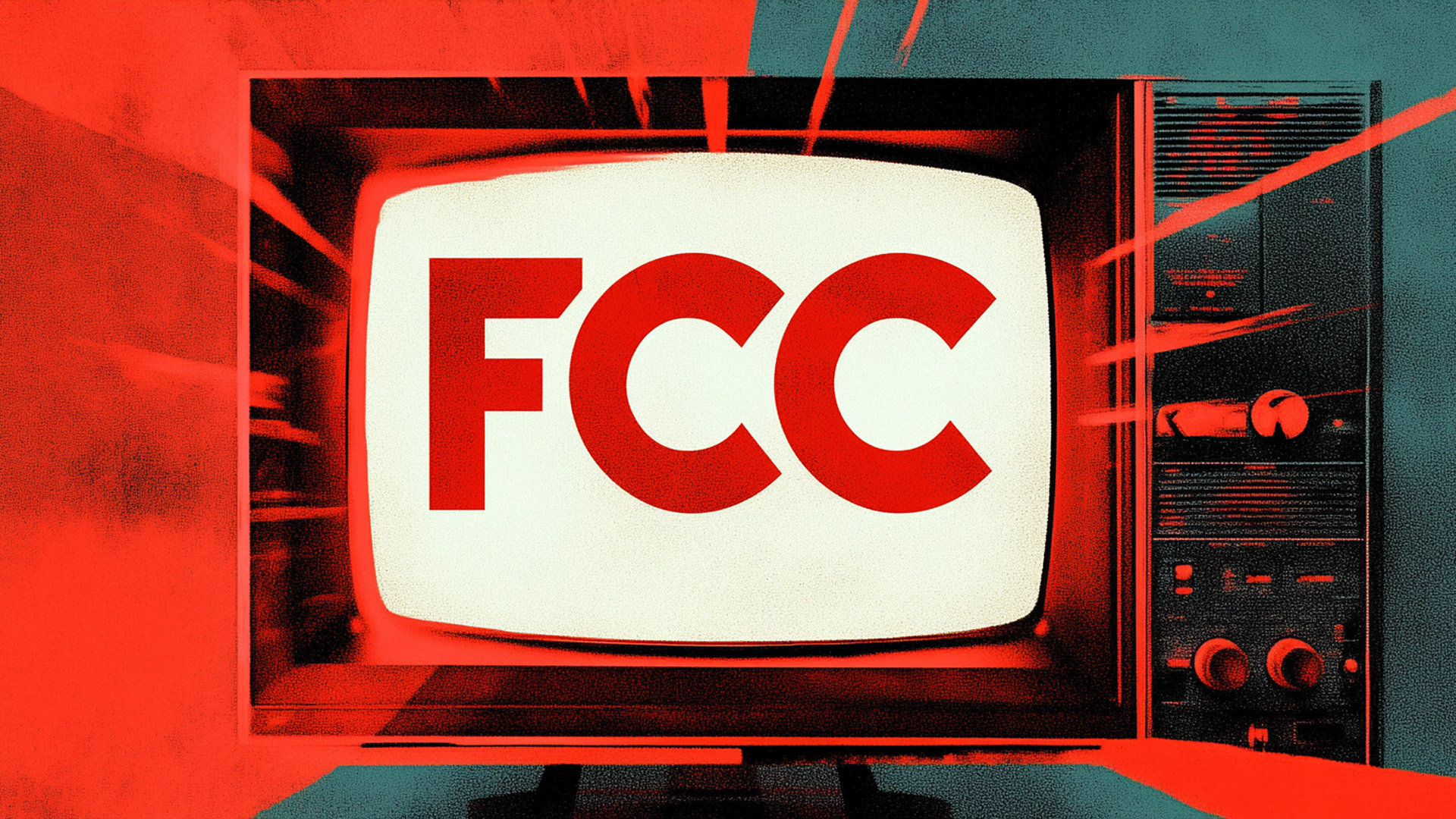Broadcasters mount unified push to eliminate national ownership restrictions in latest FCC filing

Weekly insights on the technology, production and business decisions shaping media and broadcast. Free to access. Independent coverage. Unsubscribe anytime.
A broad coalition of television broadcasters submitted a joint filing last week urging the Federal Communications Commission to eliminate the national television ownership cap, arguing that the decades-old restriction hampers their ability to compete against digital platforms and streaming services.
The National Association of Broadcasters, along with major station groups including Sinclair, Nexstar, Fox Television Stations and network affiliates associations, filed reply comments on August 22 calling for the complete repeal of the rule that limits broadcasters to reaching no more than 39 percent of U.S. television households.
“This filing reflects an extraordinary level of consensus across America’s broadcasters,” said NAB President Curtis LeGeyt, though he was not directly quoted in the 80-plus page document.
“The message is clear: it is time to eliminate the outdated national TV ownership cap. Broadcasters are united in calling on the FCC to level the playing field and give local stations a fair shot to compete, invest in journalism and continue providing our communities with trusted news and public safety information. The record leaves no doubt that the public interest is best served by empowering broadcasters, not restraining them,” added LeGeyt in a statement from NAB.
The filing represents one of the most comprehensive industry-wide efforts to eliminate broadcast ownership restrictions in recent years.
The current cap, established in 2004, prevents individual broadcast companies from owning stations that theoretically reach more than 39 percent of U.S. TV households. The rule includes a UHF discount that allows stations on UHF channels to count at only 50 percent of their market’s households toward the cap calculation.
Economic pressures drive change
The broadcasters argue that the restriction has become counterproductive in today’s media landscape, where digital platforms face no similar limitations. According to their filing, streaming services now account for 47.3 percent of total television viewing, while broadcast TV’s share has dropped to 18.4 percent.
“The national television ownership cap unfairly prevents broadcasters but none of our myriad competitors from reaching more than 39 percent of the total number of TV households in the country,” the filing stated. The companies contend this puts them at a disadvantage against “digital advertising behemoths, increasingly consolidated pay TV/broadband providers, and unregulated global streaming platforms.”
Financial data cited in the filing shows broadcast television advertising revenue has declined significantly in real terms over the past 25 years, while digital advertising continues to grow. The broadcasters argue that achieving greater scale would allow them to invest more in local news programming and other community-focused content.
Legal arguments over federal authority
A key component of the filing addresses whether the FCC has legal authority to modify or eliminate the cap. Some commenters in the proceeding have argued that Congress removed this authority in 2004 when it set the current 39 percent limit.
The broadcasters dispute this interpretation, arguing that Congress directed the FCC to modify its rules to establish the 39 percent cap but did not permanently enshrine that number in statute or prohibit future changes.
“The ‘one, cardinal canon’ in interpreting a statute is that one ‘must presume that a legislature says in a statute what it means and means in a statute what it says there,'” the filing stated, citing Supreme Court precedent. The companies argue the relevant statutory language contains no prohibitions on FCC review of the cap.
The filing also addresses the Supreme Court’s recent decision in Loper Bright Enterprises v. Raimondo, which eliminated judicial deference to agency interpretations of ambiguous statutes. The broadcasters contend this decision supports their position, noting the FCC has consistently maintained it has authority to modify the cap since 2013.
Opposition from pay-TV and advocacy groups
The filing responds extensively to opponents of the rule change, including pay-TV industry groups and advocacy organizations like Free Press. These groups argue that eliminating the cap would reduce competition and harm localism by leading to fewer independent newsroom operations.
The broadcasters counter that consolidation would actually enhance local news coverage by providing stations with greater resources. They cite data showing that from 2011 to 2023, as TV station groups increased in scale but decreased in number, the amount of local news programming increased by nearly 50 percent.
“Broadcast TV stations invest in the news because it is a critical piece of what they offer to the public,” the filing argued. “And as for-profit entities, they offer high-quality local news because it is a competitive differentiator that sets apart one station from other stations.”
The document dismisses concerns from pay-TV providers about potential increases in retransmission consent fees, calling these arguments “self-interested” and “hypocritical” given the industry’s own consolidation efforts.
Industry implications
The push to eliminate the ownership cap comes as traditional broadcasters face increasing pressure from streaming services and digital platforms that operate without similar restrictions. Major broadcast groups have completed several significant acquisitions in recent years, though the national cap has limited further expansion for the largest companies.
If successful, the elimination of the cap could enable further consolidation in the broadcast industry, potentially allowing companies like Nexstar, Sinclair, and others to expand their footprints significantly.
However, the FCC would still review individual transactions under its public interest standards, but industry observers doubt that the FCC would block any transactions given the Commission’s pro-M&A stance.
The Commission has not indicated when it might act on the proceeding, which was initiated in 2017 and refreshed earlier this year. The agency faces competing pressures from industry groups seeking deregulation and advocacy organizations calling for stronger media ownership restrictions.
The joint filing is another step in the broadcasters’ efforts to modernize ownership rules.






tags
Curtis LeGeyt, Deregulation, FCC, Fox Television Stations, NAB, Nexstar, Nexstar Media Group, Sinclair Broadcast Group, sinclair broadcasting
categories
Broadcast Business News, Broadcast Industry News, Heroes, Policy